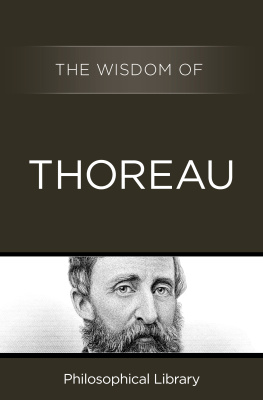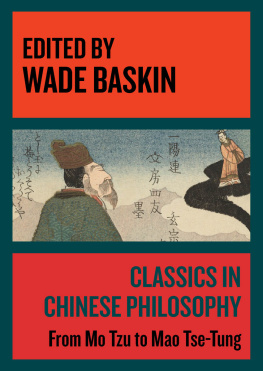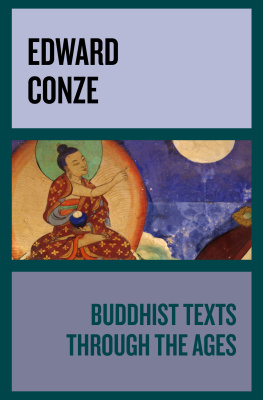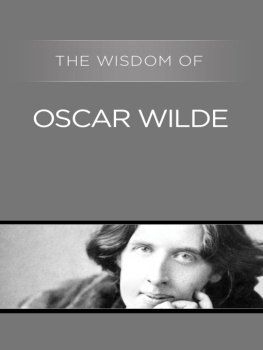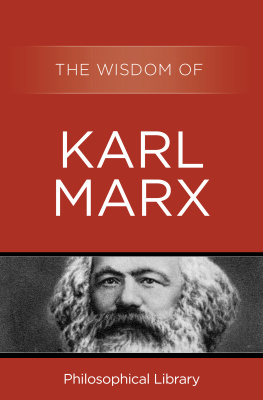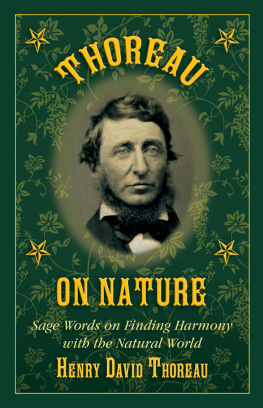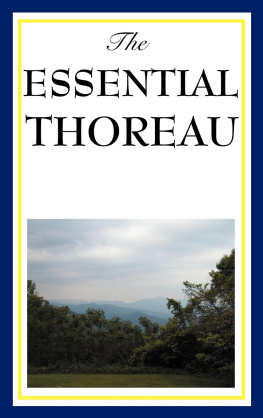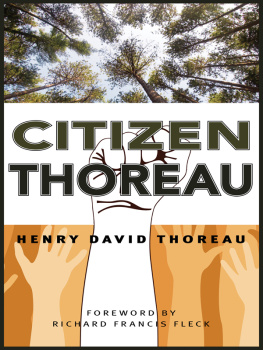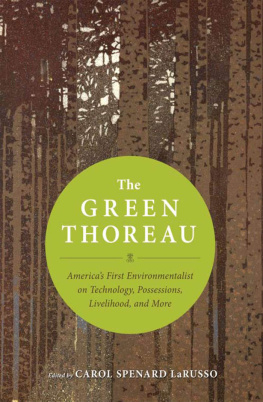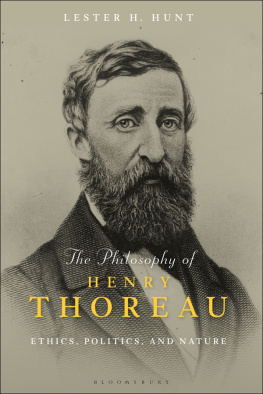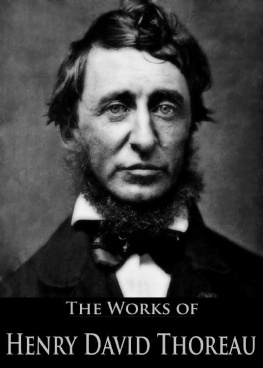The Wisdom of
THOREAU
Philosophical Library
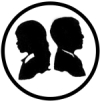
CONTENTS
Henry David Thoreau was born at Concord, Massachusetts, on July 12, 1817. Most casual students of literature know little about him except for his fame as the author of Waldenthat he lived alone for two years in a cabin at the then remote Walden Pond and out of this experience wrote a classic of poetic naturalism.
Thoreau was more than just the author of Walden, however. He was the arch example in our history of the intrepid individualist, the man who believed in doing what he wanted.
What he wanted was a complete and sympathetic communication with his environment. He sought to transmit his own essence to naturethe world of trees, animals, sky and seain such a way as to know the nature of nature as, say, Montaigne knew the nature of man.
Thoreaus love of nature was in the form of an obsession and therefore exaggerated, but for this very reason he became an archetype of one species of human temperament. Just as Shakespeare represents the highest form of the universal mind, just as Montaigne represents humanism in its highest form, so does Thoreau represent poetic naturalism.
But as already suggested, Thoreau was more than just a nature writer. He was a protestor of some importance to his time, and expounded a philosophy of civil disobedience that today is the principal inspiration for protest against social injustice. All in all he stands as a philosopher of nature whose writings have passed into history with force and universality.
With a little more deliberation in the choice of their pursuits, all men would perhaps become essentially students and observers, for certainly their nature and destiny are interesting to all alike. In accumulating property for ourselves or our posterity, in founding a family or a state, or acquiring fame even, we are mortal; but in dealing with truth we are immortal, and need fear no change nor accident. The oldest Egyptian or Hindu philosopher raised a corner of the veil from the statue of the divinity; and still the trembling robe remains raised, and I gaze upon as fresh a glory as he did, since it was I in him that was then so bold, and it is he in me that now reviews the vision. No dust has settled on that robe; no time has elapsed since that divinity was revealed. That time which we really improve, or which is improvable, is neither past, present, nor future.
My residence was more favorable, not only to thought, but to serious reading, than a university; and though I was beyond the range of the ordinary circulating library, I had more than ever come within the influence of those books which circulate round the world, whose sentences were first written on bark, and are now merely copied from time to time on to linen paper. Says the poet Mr Camar Uddn Mast, Being seated to run through the region of the spiritual world; I have had this advantage in books. To be intoxicated by a single glass of wine; I have experienced this pleasure when I have drunk the liquor of the esoteric doctrines. I kept Homers Iliad on my table through the summer, though I looked at his page only now and then. Incessant labor with my hands, at first, for I had my house to finish and my beans to hoe at the same time, made more study impossible. Yet I sustained myself by the prospect of such reading in future. I read one or two shallow books of travel in the intervals of my work, till that employment made me ashamed of myself, and I asked where it was then that I lived.
The student may read Homer or schylus in the Greek without danger of dissipation or luxuriousness, for it implies that he in some measure emulate their heroes, and consecrate morning hours to their pages. The heroic books, even if printed in the character of our mother tongue, will always be in a language dead to degenerate times; and we must laboriously seek the meaning of each word and line, conjecturing a larger sense than common use permits out of what wisdom and valor and generosity we have. The modern cheap and fertile press, with all its translations, has done little to bring us nearer to the heroic writers of antiquity. They seem as solitary, and the letter in which they are printed as rare and curious, as ever. It is worth the expense of youthful days and costly hours, if you learn only some words of an ancient language, which are raised out of the trivialness of the street, to be perpetual suggestions and provocations. It is not in vain that the farmer remembers and repeats the few Latin words which he has heard. Men sometimes speak as if the study of the classics would at length make way for more modern and practical studies; but the adventurous student will always study classics, in whatever language they may be written and however ancient they may be. For what are the classics but the noblest recorded thoughts of man? They are the only oracles which are not decayed, and there are such answers to the most modern inquiry in them as Delphi and Dodona never gave. We might as well omit to study Nature because she is old. To read well, that is, to read true books in a true spirit, is a noble exercise, and one that will task the reader more than any exercise which the customs of the day esteem. It requires a training such as the athletes underwent, the steady intention almost of the whole life to this object. Books must be read as deliberately and reservedly as they were written. It is not enough even to be able to speak the language of that nation by which they are written, for there is a memorable interval between the spoken and the written language, the language heard and the language read. The one is commonly transitory, a sound, a tongue, a dialect merely, almost brutish, and we learn it unconsciously, like the brutes, of our mothers. The other is the maturity and experience of that; if that is our mother tongue, this is our father tongue, a reserved and select expression, too significant to be heard by the ear, which we must be born again in order to speak. The crowds of men who merely spoke the Greek and Latin tongues in the middle ages were not entitled by the accident of birth to read the works of genius written in those languages; for these were not written in that Greek or Latin which they knew, but in the select language of literature. They had not learned the nobler dialects of Greece and Rome, but the very materials on which they were written were waste paper to them, and they prized instead a cheap contemporary literature. But when the several nations of Europe had acquired distinct though rude written languages of their own, sufficient for the purposes of their rising literatures, then first learning revived, and scholars were enabled to discern from that remoteness the treasures of antiquity. What the Roman and Grecian multitude could not hear, after the lapse of ages a few scholars read, and a few scholars only are still reading it.
However much we may admire the orators occasional bursts of eloquence, the noblest written words are commonly as far behind or above the fleeting spoken language as the firmament with its stars is behind the clouds. There are the stars, and they who can may read them. The astronomers forever comment on and observe them. They are not exhalations like our daily colloquies and vaporous breath. What is called eloquence in the forum is commonly found to be rhetoric in the study. The orator yields to the inspiration of a transient occasion, and speaks to the mob before him, to those who can

